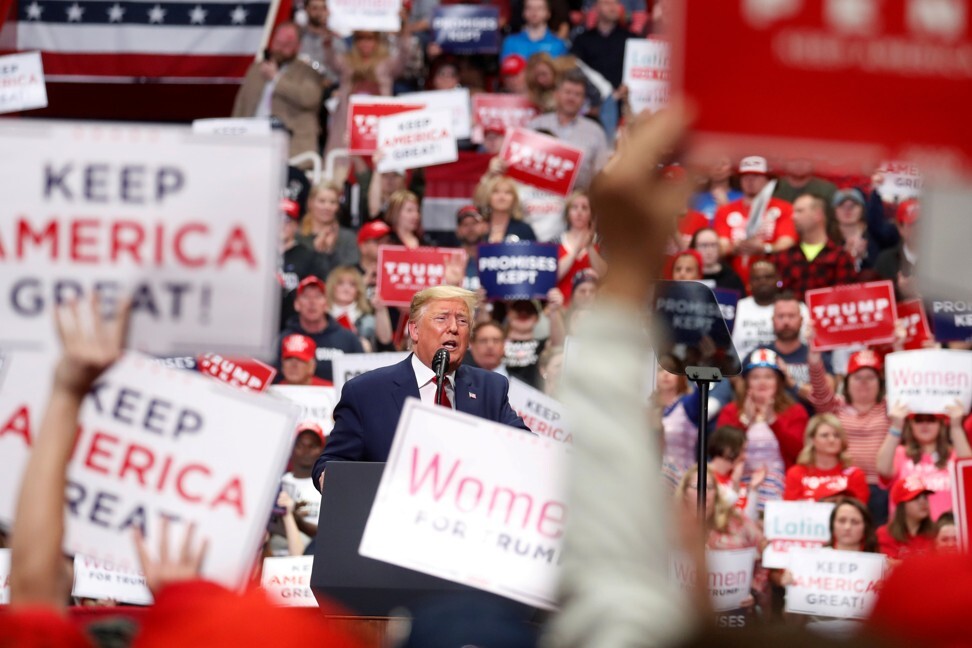
Trump’s postpones Oklahoma rally ‘out of respect’ for Juneteeth holiday
- The June 19 holiday commemorates the end of slavery in the United States
- Trump had faced criticism for scheduling his first campaign rally in months on a day known by Black Americans as Freedom Day
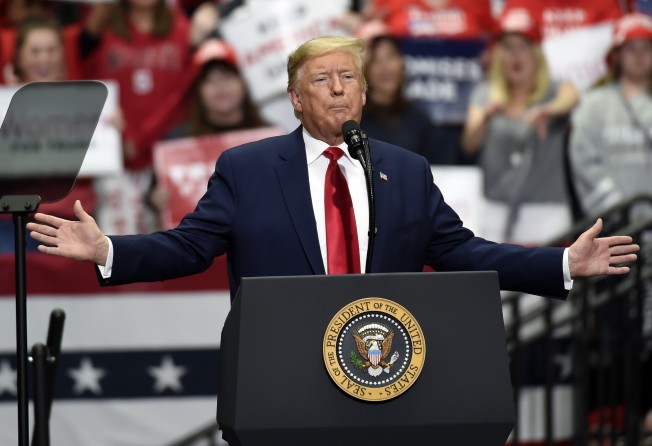
US President Donald Trump said he would shift the date of an Oklahoma rally from June 19, the date of the “Juneteenth” holiday, to June 20, out of respect for a day commemorating the end of slavery in the United States.
Amid protests against racial injustice, Trump had faced criticism for scheduling his first campaign rally in months on a day known by Black Americans as Freedom Day and in Tulsa, Oklahoma, a city where white mobs massacred Black Americans a century ago.
“Many of my African-American friends and supporters have reached out to suggest that we consider changing the date out of respect for this Holiday,” Trump tweeted. “I have therefore decided to move our rally to Saturday, June 20, in order to honour their requests.”
Trump, seeking re-election on November 3, scheduled the Tulsa rally on June 19, the date in 1865 when Texas became the last of the pro-slavery Confederate states forced to comply with former President Abraham Lincoln’s Emancipation Proclamation during the Civil War declaring all people held as slaves free.
Tulsa, a city important in Black American history, in 1921 was the site of one of the bloodiest outbreaks of racist violence in US history in which white mobs attacked black residents and businesses.
Referring to his rally, Trump told Fox News in an interview aired earlier on Friday: “Think about it as a celebration.”
The Republican president suspended his political rallies in March due to the coronavirus pandemic. Trump denied that scheduling the Tulsa rally on Juneteenth was deliberate.
Fox News interviewer Harris Faulkner, who is Black, later said she was not sure whether Trump was aware of the painful history of Tulsa for Black-Americans because her questions in the interview, held on Thursday, focused on the Juneteenth date of the rally.
“This isn’t just a wink to white supremacists – he’s throwing them a welcome home party,” US Senator Kamala Harris, a contender to be Democratic presidential candidate Joe Biden’s vice presidential pick, wrote on Twitter on Thursday.
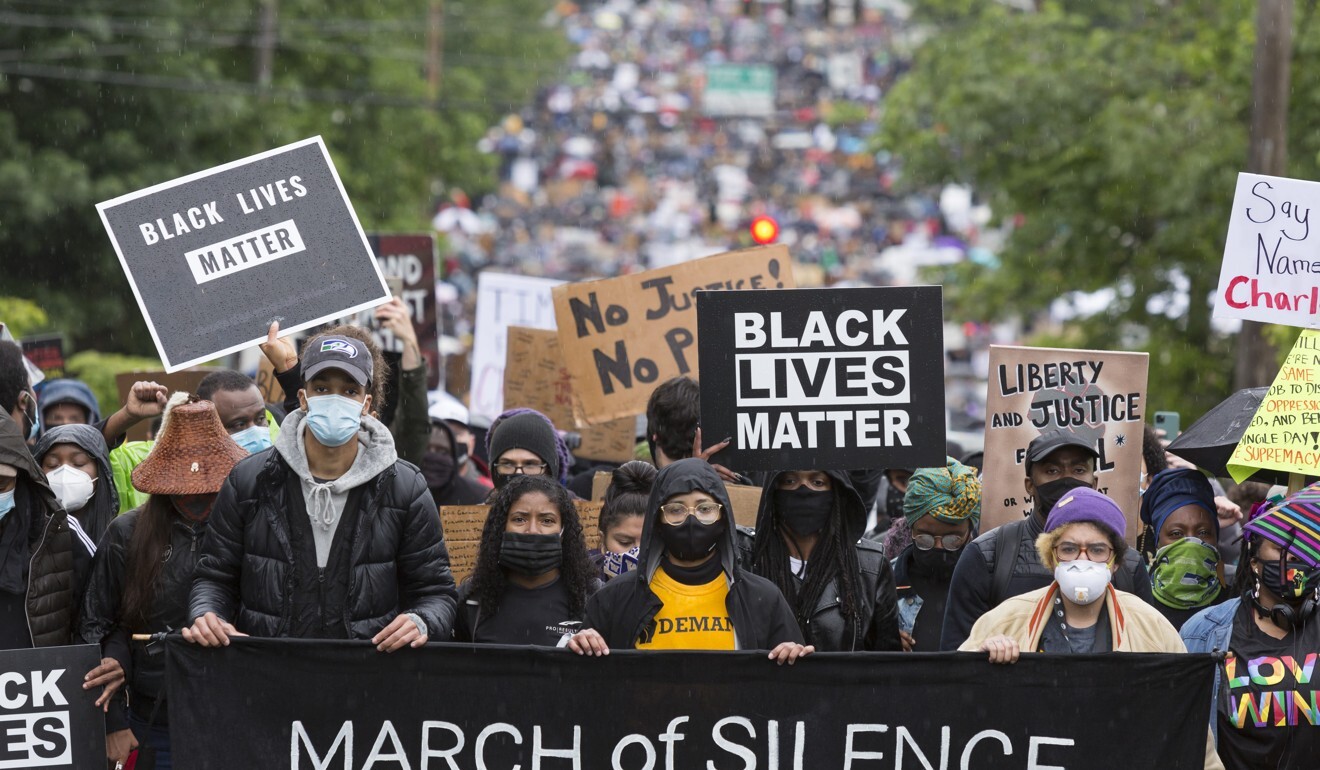
The rally will take place against a backdrop of protests around the US against and police brutality sparked by the death of George Floyd, a Black man who died in police custody in Minneapolis on May 25 after a white officer knelt on his neck for nearly nine minutes. The officer was fired and has been charged with second-degree murder.
Around the world, people have marched in the streets of Berlin, London, Paris and other cities to support Black Lives Matter protesters in the US, decry police brutality and vent anger over Trump’s response to Floyd’s killing.
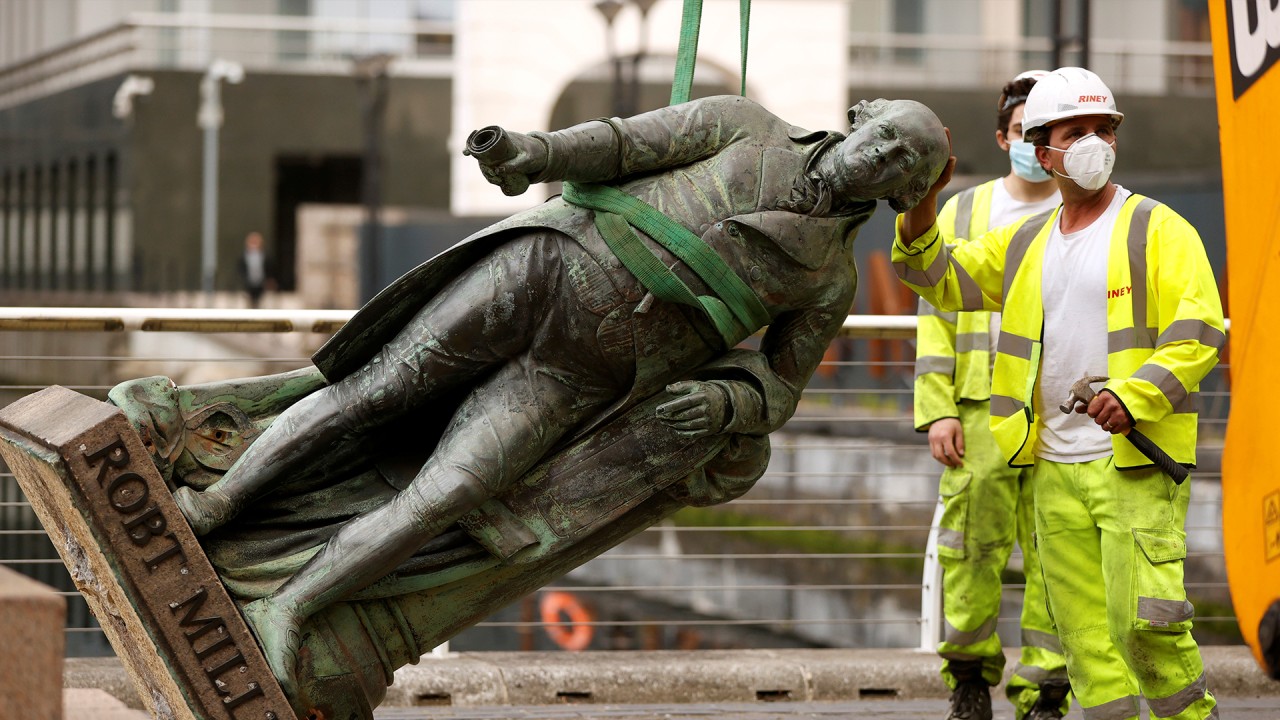
Colonial-era statues are toppled and damaged in global Black Lives Matter protests
But at the top, the leaders of traditional US allies have taken pains to avoid criticising Trump directly, walking a fine line to reconcile international diplomacy with domestic outrage.
Canadian Prime Minister Justin Trudeau let silence speak for itself when asked to comment on the decision to forcibly clear peaceful protesters outside the White House to make way for a Trump photo-op at a nearby church, standing pensively at his lectern apparently mulling his answer for more than 20 seconds before answering that Canada also suffered from “systemic discrimination” – never mentioning the US president.
“We need to be allies in the fight against discrimination,” he said. “We need to listen, we need to learn, and we need to work hard to fix, to figure out how we can be part of the solution on fixing things.”
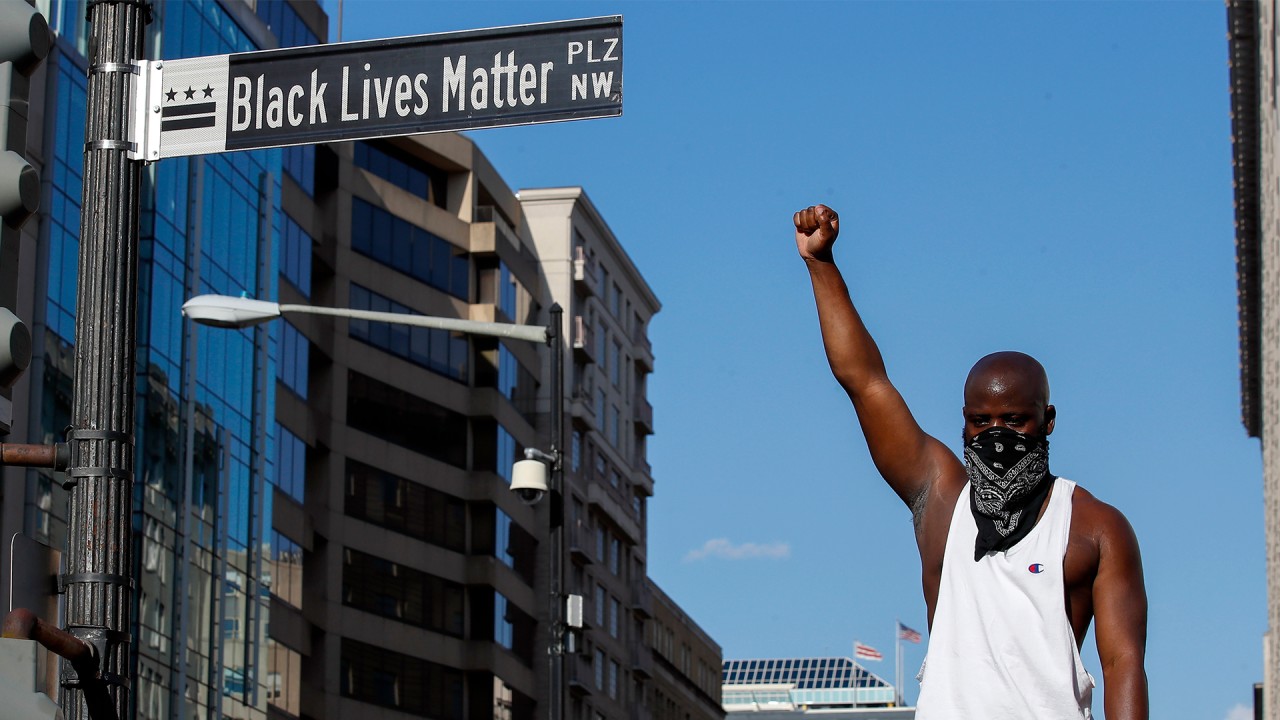
03:10
Anti-racism and police brutality protests sparked by death of George Floyd continue around the globe
German Chancellor Angela Merkel sidestepped questions from ZDF public television about Trump last week, saying the killing of Floyd was “really, really terrible”.
“Racism is something terrible, and society in the United States is very polarised,” she said.
When pressed, Merkel conceded that Trump’s “political style is a very controversial one” but would go no further when asked if she had confidence in him.
Merkel’s verbal gymnastics could have been anticipated – in more than 14 years as chancellor, she has steered clear of ever critiquing allied world leaders – but even leaders who typically support Trump, like Hungary’s Viktor Orban or Israel’s Benjamin Netanyahu have stayed silent on this issue.
British Prime Minister Boris Johnson, who has sought to cultivate close ties with Trump, called Floyd’s death “appalling” and said people have a “right to protest to make their feelings known about injustices such as what happened to George Floyd” but urged peaceful demonstrations.
Britain has seen several protests turn violent, and last weekend, demonstrators in Bristol toppled the statue of a 17th-century slave trader. They also spray-painted an iconic statue of former Prime Minister Winston Churchill in London, calling him “a racist”.
Asked on Wednesday in Parliament to name Trump’s good qualities, Johnson stuck to generalities.
“Mr. Trump, he has, among many other things, he is president of the United States, which is our most important ally in the world today,” Johnson said. “Whatever people may say about it, whatever those on the left may say about it, the United States is a bastion of peace and freedom and has been for most of my lifetime.”
France’s Emmanuel Macron, who has in the past steered clear of criticising Trump specifically but has been vocal in speaking out against policies like the wine tariffs introduced by the administration, has not made a public appearance since Floyd was killed on May 25.
France had several protests over the past week, with growing pressure on the government to address accusations of brutality and racism within the police force.
Macron’s office said the president was monitoring the events in France and the US, but “he did not wish to speak for the moment”. He was expected to address the nation on Sunday.
A few leaders have spoken out more strongly, like Spanish Prime Minister Pedro Sanchez, who criticised the response to the protests in the US as “authoritarian” when pressed in parliament last week for an explicit response on Floyd’s killing.
“I share and stand in solidarity with the demonstrations that are taking place in the United States,” he said.
Norwegian Prime Minister Erna Solberg told the country’s NTB news agency last week that she was “deeply concerned about what is happening in the United States”.
“The fundamental challenge of making minorities feel part of a society is essential. We must all work with that,” she said. “One has to try to bridge the gap. It is not good for any society to be as deeply divided as the United States is now.”
Ghana’s President Nana Akufo-Addo said last week that it “cannot be right that, in the 21st century, the United States, this great bastion of democracy, continues to grapple with the problem of systemic racism”. South African President Cyril Ramaphosa noted the “naked racism in the United States”, calling the protests a turning point. Neither mentioned Trump by name.